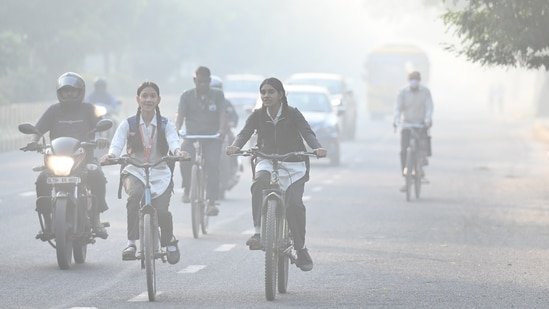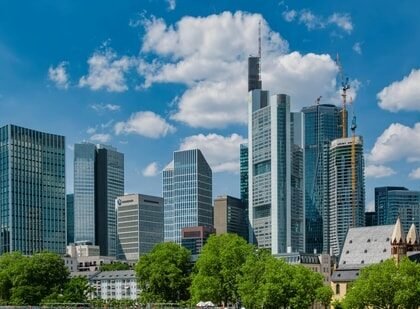Air quality in Delhi National Capital Region (NCR) remains a critical concern, continually challenging the health and well-being of its residents. For nearly 30 million people who call NCR their home, the crisis is immediate and deeply personal. Poor air quality has led to a significant increase in respiratory ailments, particularly among children and the elderly, triggering everything from persistent coughs and shortness of breath to severe conditions like asthma and chronic obstructive pulmonary disease (COPD).

The seasonal spikes in pollution, often driven by factors like vehicular emissions, industrial discharge, construction dust and stubble burning, bring the issue of breathable air sharply into focus. The pervasive smog forces schools to close, disrupts daily commutes and impacts the mental well-being of residents, making outdoor activity a gamble and turning homes into safe havens dependent on air purifiers.
Year on year, it is the same problem which requires some concrete solution in the form of governmental and industrial reforms. At the same time, it also requires a fundamental shift in daily practices from us. The conversation is increasingly moving from what authorities must do to what every individual can do, emphasising that small, personal choices – our daily habits – accumulate to have a profound collective impact on the environment.
With this in mind, GAIL (India) Limited has partnered with Hindustan Times to launch a major public awareness initiative, the ‘Habit Badlo, Hawa Badlo’ campaign. The campaign highlights how simple choices, particularly concerning energy consumption, directly lead to a positive environmental impact (‘Hawa Badlo’). The initiative aims to empower citizens by showing that the path to cleaner air begins with everyday decisions. Discover more about the campaign here.
From energy provider to environmental enabler
The campaign resonates deeply with residents of the Delhi NCR who have begun adopting cleaner habits at the personal level to combat the persistent air pollution problem. For many, the necessity for change has translated into tangible, everyday shifts.
For instance, Rajesh Sharma, a resident of Gurugram who travels nearly 100 kms daily to his factory in Bahadurgarh, explains his decision to transition to cleaner fuel: “I used to think my small car didn’t make much difference, but when I switched to an electric vehicle, the difference in engine noise and the cleaner exhaust was obvious. It was an initial investment, but now I feel I’m contributing to less smog and saving on fuel costs too. It’s a good feeling to know that I’m not adding as much to the city’s pollution.”
Similarly, Anita Rao, a homemaker from south Delhi, shared her experience with domestic fuel: “We’ve become stricter about only using Piped Natural Gas (PNG) for all our heavy-duty cooking, even for catering small family functions. It’s a small change that ensures cleaner air, especially around our homes.”
The commitment extends to larger tree plantation drives by city students. Vineeta Gupta, an IT professional residing in Delhi, has brought together friends of her children and relatives to plant as many trees as they can, in their home gardens, community parks, and farmhouses. “Delhi as we see it today is not as green as it used to be when we were growing up. If every resident of NCR plants even one tree, we will be able to bring down AQI levels. Each and every Delhi-ites need to do something to clean our hawa,” she said.
Addressing a recurring crisis
The launch of a dedicated awareness campaign like ‘Habit Badlo, Hawa Badlo’ is the need of the hour, where every resident of Delhi NCR must do their bit to bring change. Air pollution in NCR is a long-standing issue that re-emerges with crippling intensity year after year. The cycle of poor air quality – from stubble burning leading to hazy skies, to unchecked vehicular density creating local hotspots – has become a tragic reality for the region. While the authorities will do what needs to be done, public engagement that focuses on personal accountability and actionable, easy-to-implement solutions is the need of the hour. This campaign aims to fill that gap by giving citizens the tools and knowledge to make environmentally conscious choices.
As part of the campaign, two expert sessions will be organised featuring conversations with environmental and industry experts, to provide practical, accessible advice on sustainable living. The videos will incorporate themes of ‘Green Weddings’ and ‘Festival best practices’, showing people how to conduct their festivities without compromising the celebratory spirit while reducing their environmental footprint. This addresses the often-overlooked pollution spikes tied to large social gatherings, which often involve significant waste generation, energy usage and air pollution from fireworks or diesel generators.
The ‘Habit Badlo, Hawa Badlo’ initiative by GAIL is a concerted effort to shift the national consciousness, making every Indian an active participant in the journey towards cleaner air and a greener future. It underscores the belief that collective change, fuelled by individual responsibility, is a sustainable path forward.
Note to Readers: GAIL’s Habit Badlo, Hawa Badlo campaign is a partnered initiative with HT editorial.





